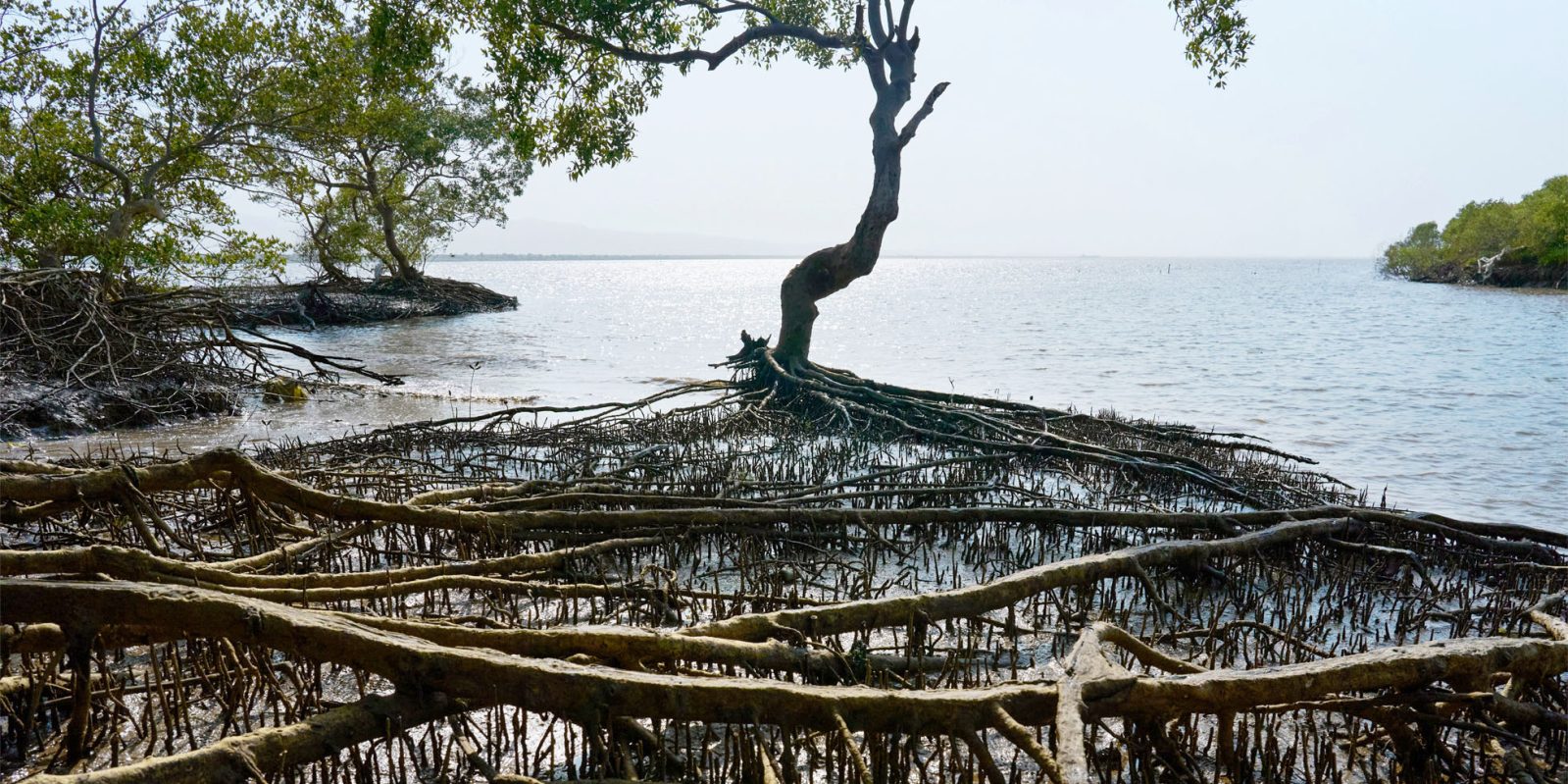
The first Apple mangrove preservation project began in 2018, with the focus then on the role the saltwater trees play in decarbonization. The company has now extended this environmental work into India, this time stressing the additional part mangrove trees play in protecting coastal communities.
Apple has partnered with the Applied Environmental Research Foundation (AERF) to help local people transition their economy from one that destroys mangroves to one that is incentivized to protect them …
Background
Mangroves are the term used to describe any trees that grow in saltwater along tropical coastlines. Their roots can spread in both wet mud and water, and they are able to filter out salt from the water they absorb.
All plants absorb carbon dioxide, making forests important in efforts to decarbonize the planet, but mangroves are especially important as they absorb 10 times as much CO2 as most trees.
This was the aspect Apple emphasized when it announced a project to restore and protect mangroves in Columbia back in 2018 – issuing an update the following year.
But mangroves also help protect coastal communities from the impact of tsunamis and storms, by acting as a buffer zone around the coast, and this is the benefit the company is stressing today.
Second Apple mangrove preservation project
Apple announced that it gave a grant to the AERF to create a mangrove protection plan for an area close to Mumbai, India.
The power of mangroves to protect India’s coastal villages has been recently demonstrated. After a massive undersea earthquake in Indonesia triggered a series of tsunamis that impacted India’s east coast in 2004, people realized mangroves were the communities’ silent guardians, absorbing the shock of the immense waves and protecting the villages that lay beyond. Over the last few years, the region has seen more-frequent strong cyclones, including Nisarga in 2020 and Tauktae in 2021. In Raigad, families in the villages are working to protect the mangroves and, in turn, their own well-being and livelihoods.
But mangroves have been a source of firewood for local villagers, meaning that the protection they offer has been diminished. This is one of the challenges Apple’s donation is helping to overcome.
Apple’s grant is supporting the purchase and distribution of portable bio-stoves that allow people to cook without cutting down mangroves for firewood.
The project is also helping locals switch from work that damages the mangroves to ones that protect it, though the company doesn’t go into details here.
“The fight against climate change is a fight for the communities around the world whose lives and livelihoods are most threatened by the crisis, and that’s where we’ve focused our work — from Colombia to Kenya to the Philippines,” says Lisa Jackson, Apple’s vice president of Environment, Policy, and Social Initiatives. “Our new partnership in India continues this momentum, helping a community benefit economically from the restoration of the mangrove forests that protect against the worst impacts of climate change.”
FTC: We use income earning auto affiliate links. More.






Comments